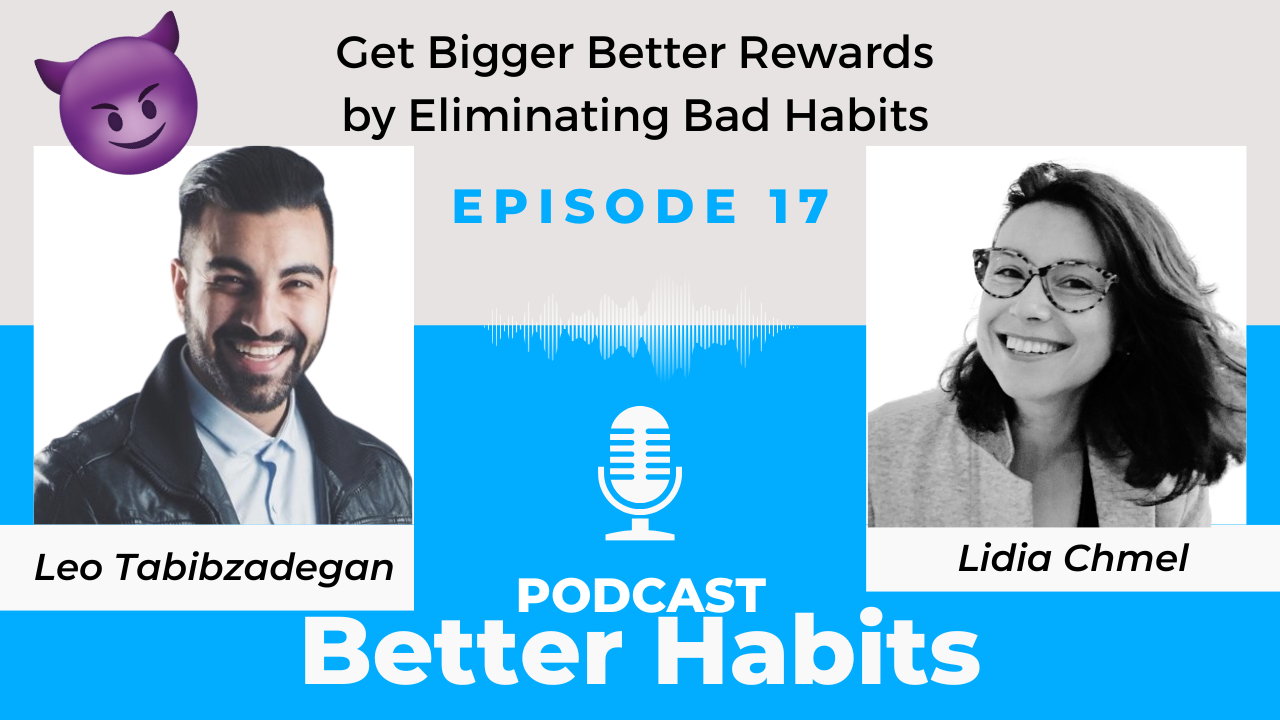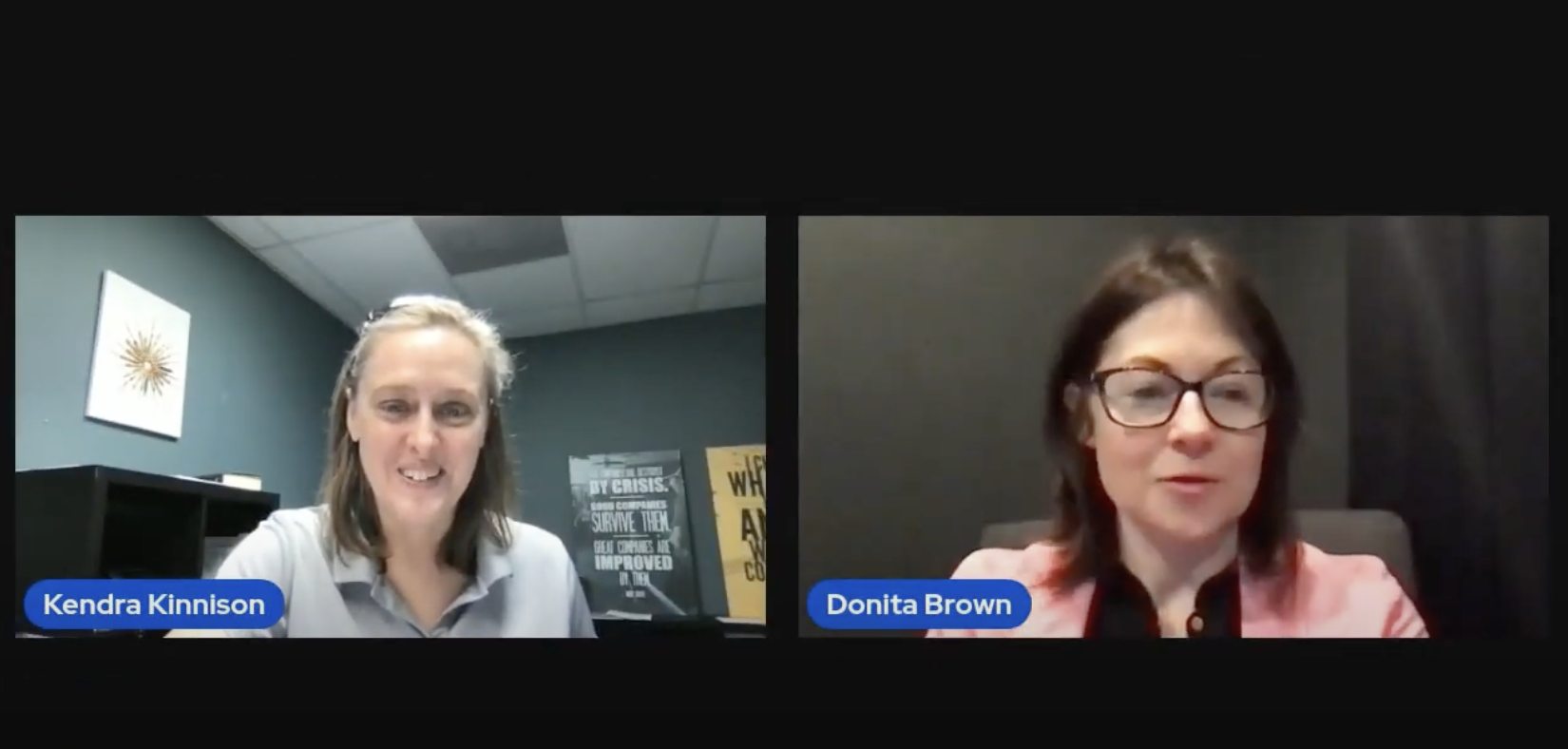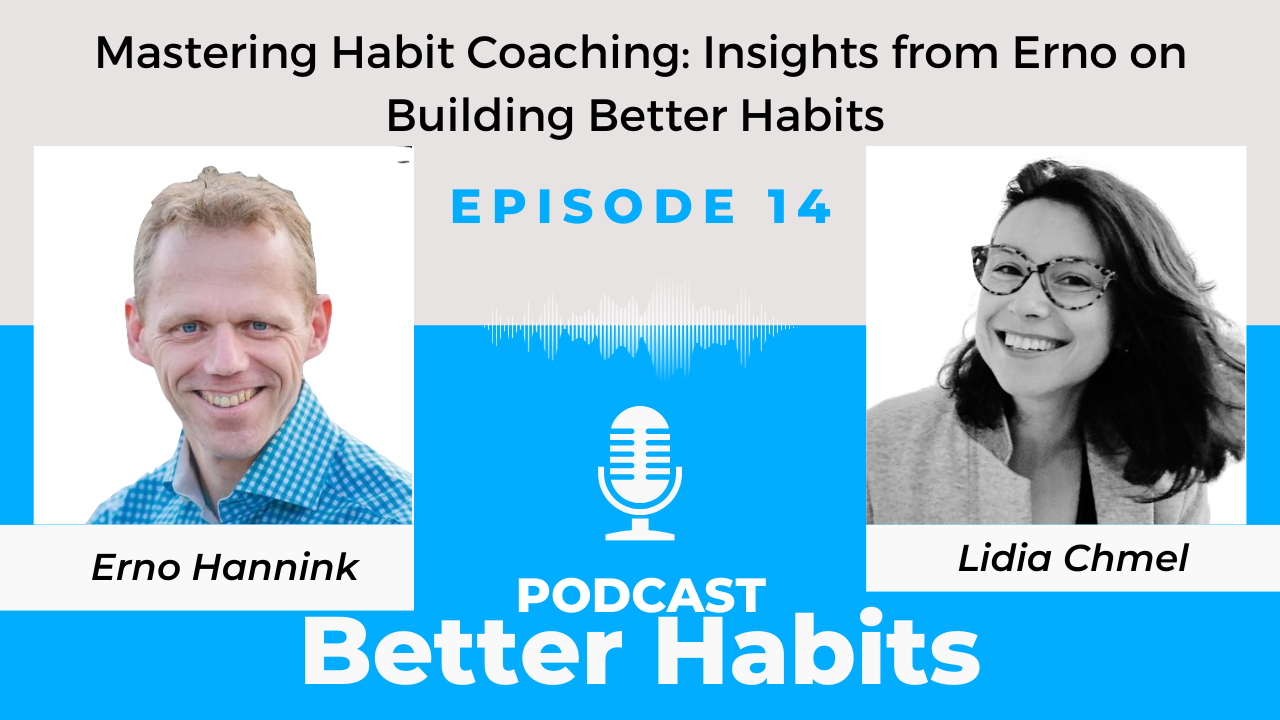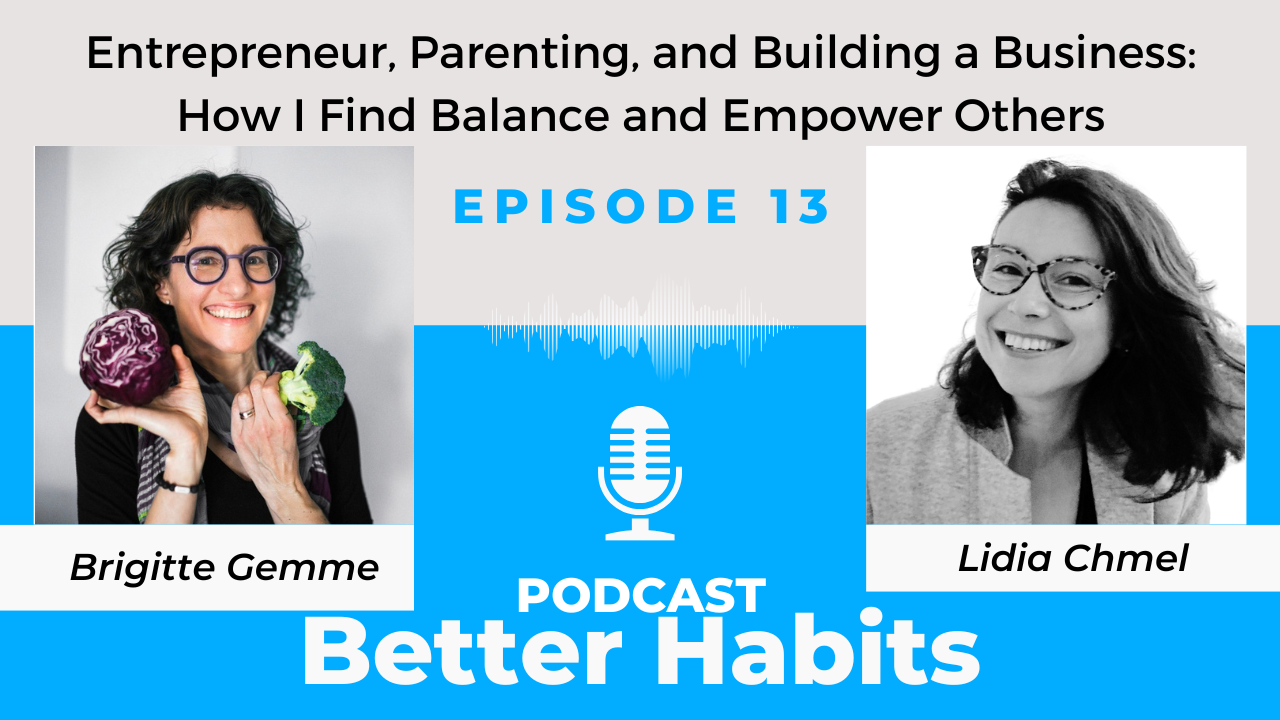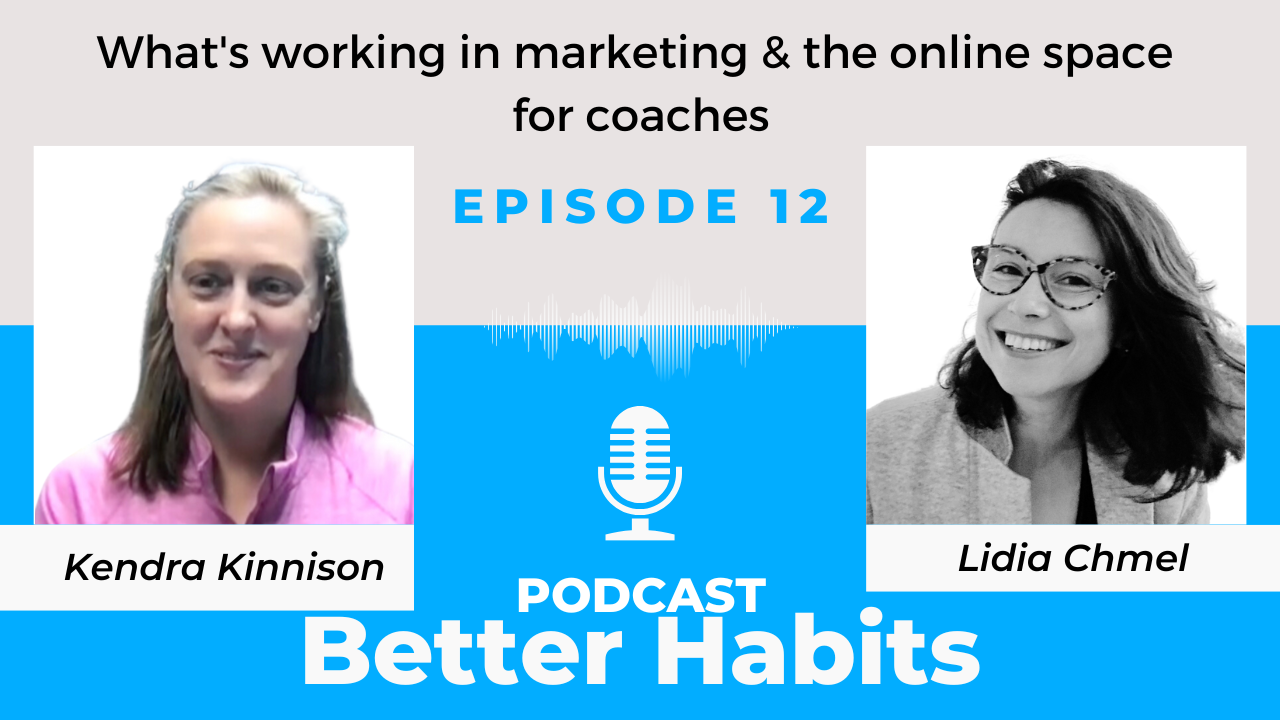I love asking people about their habits and what makes them happier.
And I was having lunch with a friend and. You know, I am a happiness bully. So I was quizzing her about her habits. And she said something that hit me like a ton of bricks. She said, I know I’m happier when I exercise. And the weird thing is when I was in high school, I was on the track team and I never missed track practice.
So why can’t I go running now? And I thought, well, why, you know, it’s the same person. It’s the same behavior at one time, it was effortless. Now she’s really struggling. What, and I could imagine many explanations for that, but what was really going on. And that, that moment really is what made me decide to figure out, um, these deeper patterns in how people, um, formed, or it didn’t form how.
Absolutely. So the four tendencies divide the world into upholders, questioners, obligers, and rebels. And what it looks at is something that sounds dry, but turns out to be very significant, which is how you respond to expectations. We all face two kinds of expectations, outer expectations, like a work deadline, or a request from a friend, and inner expectations.
My own desire to start a side hustle my own desire to write a novel in my free time. So depending on how you respond to. That’s what makes you an upholder, a question or an obliger or a rebel.
1. Upholders
Upholders readily meet outer and inner expectations. They need the work deadline. They keep the new year’s resolution without much fuss.
They want to know what others expect from them, but their expectations for themselves are just as important. So their motto is “Discipline is my freedom.”
2. Questioners
Then there are questioners. Questioners question all expectations. They’ll do something. If they think it makes sense, effective unjustified.
That always need to know why. So if it meets their inner standard, they’ll do it. No problem. If it fails their inner standard, they will push back. So their motto is all compliant. If you convince me why these are the people who are often told that they asked you many times.
3. Obligers
Obligers readily meet outer expectations, but they struggle to meet inner expectations.
If you are a coach, these are probably the people who are coming to you. And these are probably the people who will benefit the most because they need outer accountability to meet inner expectations. Like my friend on the track team, when she had a team and a coach expecting her to show up, she had no.
When she was trying to go on her own, it was a challenge. And so what an obliger needs is outer accountability. You want to read more, join a book group. Um, so their motto is you can count on me and I’m counting on you to count on me.
4. Rebels
Rebels resist all expectations, outer and inner alike.
They want to do what they want to do in their own way. In their own time. They can do anything they want to do. They can do anything. They choose to. But if you ask her, tell them to do something, they are very likely to resist. And typically they don’t tell themselves what to do. Like they don’t sign up for a 10:00 AM yoga class on Saturday morning.
Cause they think, I don’t know what I’m going to want to do on Saturday morning. And just the idea that somebody is expecting me to show up, it’s going to bug me. So their motto is, “You can’t make me do it.”
Rebel is the smallest it’s conspicuous, but it’s small.
How to match your coaching sessions with the four types
So those are the four tenets. I love that you tied it to coaching. Cause I think sometimes coaches are surprised by how well, just those daily nudges or those daily check-ins how powerful they are. So I think as you said, if you find someone that’s an obliger, how did you say I’m, I’m counting on you to count on me?
Um, that just that little check-in makes, uh, a world of. No, it’s, it’s a huge difference. And if you want to take a quiz and sort of get an answer, I think most people know what they are. And a lot of the people around them, just from the description, um, there is a quiz quiz dot Gretchen rubin.com, which is free.
And like 3 million people have taken the quiz and it will spit out an answer. But I think you’re so right, because I think people who are not obligers often say things like you need to make yourself a priority. You need to get clear on your reasons. You need to think about what you want. You need to take time for self care.
For obligers really it’s that outer accountability. That is the thing that really moves the needle for them. And it’s not that hard to create outer accountability. There are many mechanisms for outer accountability. Coaches are amazing at creating outer accountability. There are so many tools that we can use once we realize that that is really what, where the issue lies.
It’s not motivation or self-care, self-esteem. It’s accountable. I think that’s a neat insight. And in particular ties in well to the style of coaching, um, that, that, that we predominantly offer and that has, has benefited so many folks. So the other groups, the upholder groups that have, um, also internal accountability, what are the types of things that are the best supports for.
Really almost anything works with upholders. And that’s why you sort of get a false positive with any kind of curriculum or approach or tool or app you create. Because for some group of people just about anything works because that’s the kind of person they are. So they often really like having tools.
They like to, they love to execute. They love schedules and calendars and to do lists typically. And so lots of tools will work for them. Um, Because they have an aptitude for doing that kind of thing, but what you see with upholders as they can get rigid, it can be very hard for them to stay flexible. It can be hard for them to realize, like in this moment, something else is more important.
I need to like, not go on a daily run or like the world isn’t going to fall apart. If I, if I have to cancel that 3:00 PM meeting that I scheduled, um, and sometimes they have tightening, which is where the rules get tighter and tighter on them and they get more and more caught up in kind of their own paperwork.
So if you’re dealing with an upholder, you want to remember. That it’s always in service of what you truly want. And sometimes you have to work on flexibility. I’m an upholder. Um, and I wish I had a nickel for every time. Somebody has said that I’m rigid because that’s kind of an upholder thing.
And questioners, what are the types of ways that we can support questionnaires others, other than kind of the obvious just be, be patient? My daughter is a questioner, so I have had amazing practice at, uh, at questioners. But what, what kinds of things do you recommend? With that group of folks.
Well, one thing for coaches who are dealing with questions to remember is that sometimes questioners can, can make people feel defensive or attacked or kind of undermined because it’s like, well, why aren’t you listening to me? Why don’t you trust my judgment? Um, because you just keep asking and asking and asking, but typically questioners, aren’t asking questions like to make you feel like you’re on the.
And or that you’re like being, you know, you’re, you’re, you’re being investigated by a journalist. They truly just want to understand why. And the more that they can understand why the more like the more that inner expectation will kick in. So they really want to know why, if you’re saying, oh, you should do this for 20 minutes every day.
You should do this for 20 minutes every morning. They’re going to say, well, why 20 minutes? Not 30 minutes. Why in the morning? Why not at night? Why do I do it every day? Maybe I should do it every other day. Like the more you can explain, um, the, just why you’re saying it. And of course your judgment, your experience is something that can be very persuasive.
I’ve worked with many people and I’ve seen that this works with many people. That’s evidence that’s an experience that you have, that they don’t have also questioners tend to be very interested in. Like self hacking or experiment. So one thing that often works with questionnaires is to say, well, why don’t we try this?
I’ve seen many people have great results with this. You try it. If it works for you. That’s great. Well, that’s information that we have going forward, and we can think about how to, how to customize this for you, but we need to have some information in order to figure out how to get there. So let’s try that.
And that will help us start to customize to you because they’re like, no, that makes sense. I see. We need to information gather. So then they tend to be more willing to go on because if they’re not convinced they don’t, they don’t typically do, they won’t follow along because they’re not convinced that it’s credible.
And the last group rebels. They’re super complicated to coach. Um, are, are, are there any strategies that you recommend there are very hard to coach, um, because they might hire you to sort of help them figure out what to do, but then the minute that you’re suggesting that they do something, it can ignite that spirit of resistance.
So the thing to always remember with a rebel and I work with a rebel, so I do this myself is to always couch it in. These are options. If this appeals to you, if this feels like the kind of thing, that’s fun for you. If you want to try this, here’s some, you know, it’s always like choice options. Here are three things people try:
You can figure it out. They often like things that are kind of gamified, like, Ooh, put 10, put 10 things in a jar, and pick one and just do that. And if you don’t feel like doing that, do something else. Things like to-do lists things like appointments, check. They don’t like the feeling of somebody looking over their shoulder, many rebels have said that, they quit the Duolingo app specifically because they don’t like the auto-reminders.
They often love a challenge, like, um, so I mean, it would be manipulative to be like, I don’t think you can do this. I mean, you probably wouldn’t say that as a coach, but this, this idea of like, that is a really ambitious goal. Wow. I don’t think many people could do that. I don’t think many people could have 10 clients in six months.
I don’t know. But. I’ve seen you in action and you’ve blown me away before. So I dunno, we’ll see. But it’s always your choice, what you want to do. And also the identity, um, for rebels identity is super important. So I’m a poet, I’m an athlete. I love animals. I’m a responsible citizen. I’m a creator. I love I’m going to create this.
And once I’ve created this, I want to get paid for this. Like, you know, I want to, I want to get recognized for. Um, it’s what you want. It’s what you choose. And sometimes what you can do with a rebel is remind them that you are working for them, right? You’re not telling them what to do, even if you kind of is telling them what to do, but you’re like, I’m here.
You have a big vision. You have a big vision. I am here. Is there something that I want to help you achieve that big vision? That is so exciting. I am here to throw out ideas to give you a sounding board. Like, I want to help you do what you want. So I’m working for you. Um, the more that they feel like they have an assignment, that’s not gonna work so well with her rebel, but I would love to know what your, what people’s experiences are because I’ve heard from many people who work with rebels from health care.
Parents to teachers, you know, everybody and also rebels themselves because they know they’re, they know they know about this. It’s an issue for them because they want to tell themselves what to do, but they can’t tell themselves what to do. So they have to work around it. Well in looking in the chat, it looks like, uh, several of them, of the coaches are chiming in, on the, uh, on the identity.
So we’re not one at 20 and what for year one at work and one at home. Um, but of course with time and experience and wisdom, um, how it comes and culture, it will change. So often you might see an obliger who sort of figured out even accountability. Build that in. Um, so it isn’t that they were once an obliger.
Now they’re in a folder it’s that they figured out how to work within the strengths of their own tendency to get where they’re trying to go. And again, with questioners, a questioner might look almost like a rebel because they keep resisting everything because they don’t understand why. And then with time and experience, they learn how to ask questions in a way that seems a little more constructive to other people.
I’m really interested in why you made that decision. Walk me through your, walk me through your thinking. Cause then I think I’ll be able to do a better job. It’s like, that’s different from being like, oh my gosh, why would you make such a stupid decision? Right? It comes out differently because we’ve learned how to handle ourselves and deal with our tendency and other people more effectively.
But still, our tendency is the same as it has. Awesome. So it’s really that like that, as that awareness increases, we add to our toolkit of the ability to kind of maximize the strengths of the mode or perspective that we tend to have, get to an AME. I mean, who knows this better than coaches, but we might take very different roads to get to that aim.
And so part of it is understanding like what is, what are the circumstances and the surrounding. And that helped me thrive and that might be very different from somebody else. And obliger might love to have weekly check-ins that could be essential, whereas for a rebel that could turn them off and make them run the opposite direction.
Um, so you’re right. It’s that awareness that allows you to personally.
Very cool, excellent insights. I’ve seen all kinds of commentary. It seems like as we’re parents, our kids are perhaps our first, uh, our first, uh, clients or opportunities to, to, to practice coaching. Um, so I, I see folks talking about the, um, So sort of the development in our, um, in our, in our brains and as we develop over time, um, so, so, you know, you’re thinking is that we just get, get stronger or we learn to adapt our, um, our shank.
What is the best? A most efficient, most effective way to eat healthfully. Cause my gosh, is there like a lot of conflicting information on that, right? That’s not such an easy question to answer and the, you always know it. They’re always like, yeah, I really, I don’t really know. Cause there’s like, there’s this there’s that, there’s this other thing I read this one article, but then this other article suggested that’s not true.
And I, I, and I always say, as a question, you have to have absolute clarity. You believe is the most effective and the most, um, you know, Fine way to move forward. Um, because that’s, what’s going to unleash your inner expectation. So if you’re a questioner, then you would say like, if I’m not moving forward in something, it’s probably because, in my heart, I haven’t really got that clarity.
Whereas with an obliger, I might have absolute clarity, but you know, it doesn’t like it. I feel like nobody else cares. Nobody else noticed this if I do it. But if I recruit someone else like, and I love seeing how obligers come up with outer accountability, they’re so ingenious. Yeah.
Um, I have my work just like you have your work, your teacher gives you. And so every day when you’re doing your work, I’ll do my work and Hey kids, if I’m not doing my work, you don’t have to do your work. So now her kids are her police, right? Because they’re like, Ooh, mom’s taking the day off. So are we, um, I heard of an influencer who needed to get out of bed on time and live by himself.
And so he changed the alarm on his phone. Um, cause he had a dog that slept next to him by the bed. Um, and you know, we’d go off and be like, ginger, do you want to go for a walk? Ginger, do you want to go for a walk? And the dog would like a golden retriever to jump on his chest and be like, yes, I am. For that walk and he’s like, okay, you can’t sleep now.
So it’s just, it’s sometimes it takes them into nudity. And this is why the coach has, can be so helpful because they know all kinds of tricks and tools in their toolboxes bursting with systems and accountability that people might not have come up with on their own. And they need someone to do it. And often, you know, people will try.
It’s to do it. Well, spouses don’t make any good outer accountability for one thing. It’s a lot of work to provide outer accountability as coaches. Now it’s a lot of work and energy and time, but then also for an obliger, espouses inner they’re so close to me. You’re so close to me. I’m going to ignore you just the way I’m gonna ignore me.
Um, and so often people who are more outer. Art gives more outer accountability. And so, especially like if you’re paying somebody to hold you accountable, well, that’s a lot of accountability, right? Like you’re going to feel a lot of pressure to meet that person’s expectations and that’s just enormously useful.
Many people find it useful, but obligers, most of all find that useful. Those are some excellent examples. I see in the chat folks talking about how brave some of those, those choices were. And, and I think it, it reframed some of what we do in coaching. We may think we’re suggesting, um, something pretty profound.
Uh, but, but really there, there are far more extreme examples out there. So thank you for sharing. So many of those. I think it helps, helps put, um, put things in perspective. I see Tony’s back on. I’ve appreciated the opportunity to get to. To chat with you. I’ve had a week with all kinds of unexpected things and they’ve all turned, turned out better than I could have anticipated.
So, uh, we’ll just continue to, to go with it. And I see folks commenting. We actually did not plan this morning, but I will take that we are yesterday. So, uh, it’s, it’s been a, it’s been fun. So thank you so much for joining us.
Watch the video here:
Watch the video here:

